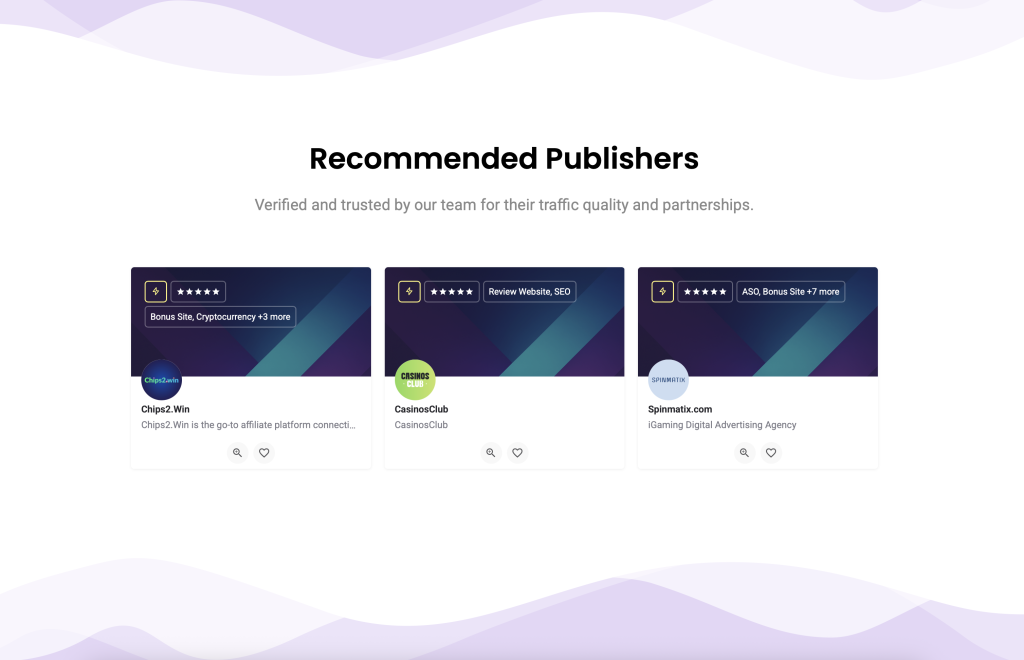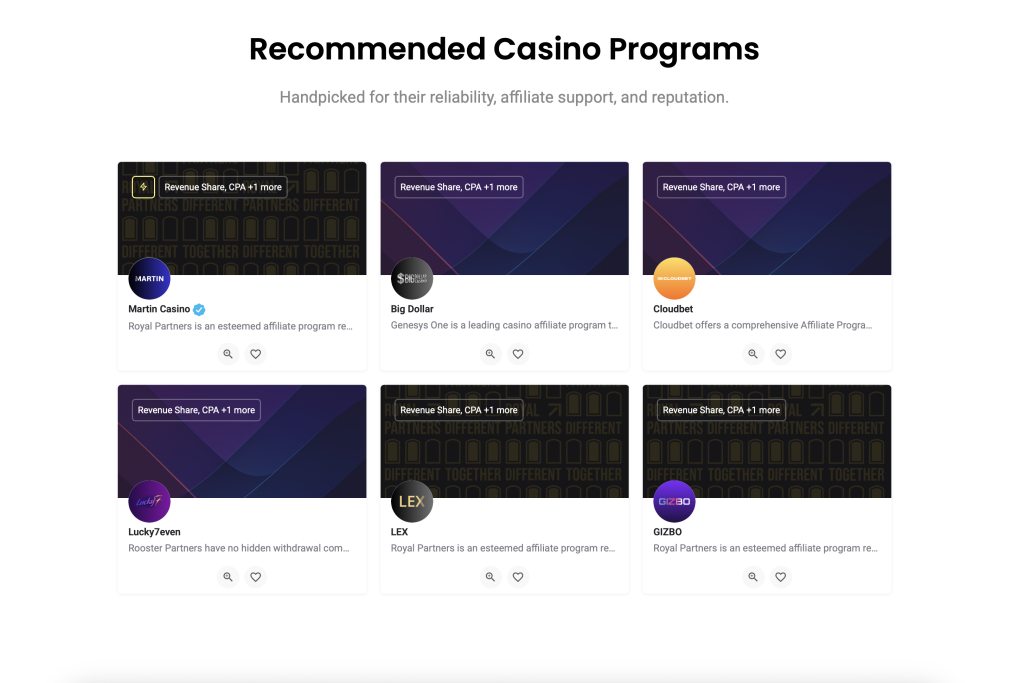-
JoinedJuly 24, 2024
-
Active listings86
- Direct message
Casinos Give Bonus
iGaming Affiliate
Bonus Site
Get Casino Games
iGaming Affiliate
Bonus Site
Get Bonuz
iGaming Affiliate
Bonus Site
Gambling Clan
iGaming Affiliate
Bonus Site
Gamble Ruby
iGaming Affiliate
Bonus Site
Finaff
iGaming Affiliate
Affiliate Network
Don Bonus
iGaming Affiliate
Bonus Site


